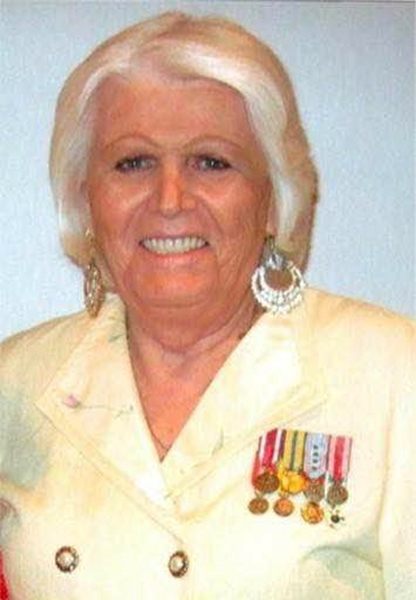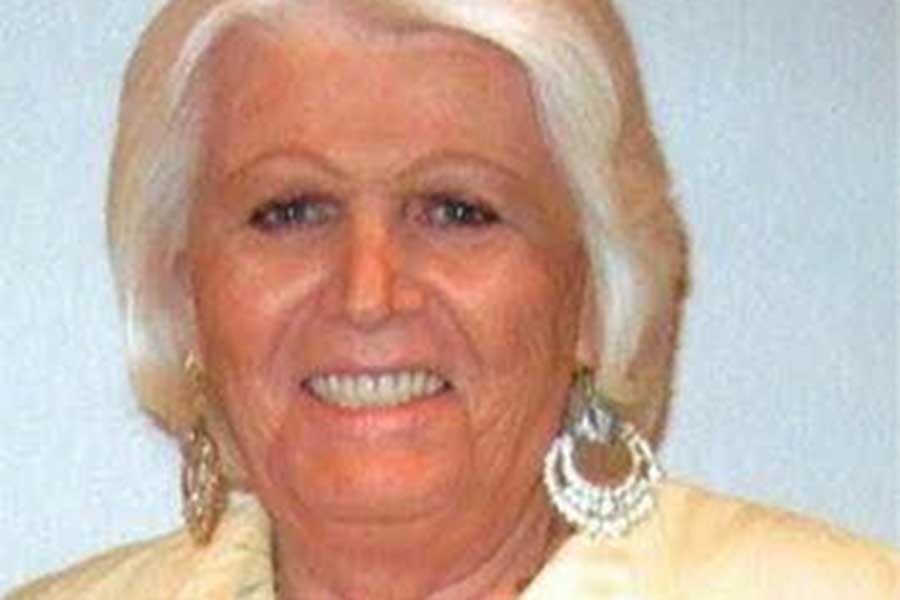
Joanne Carroll thought the president, to whom Carroll does not refer by name, was “ridiculous” after he tweeted a plan to ban transgender people from serving in the military.
“I guess I like to take people at their word and when somebody says that they’re going to be my friend, I kind of assume that’s true,” the transgender woman said of President Donald Trump’s former statements of support for the LGBT community. “And then all of a sudden when they start doing everything possible to deny that process, I say, ‘Wait a minute. You’re not my friend. If that’s what a friend looks like, I really shudder to think what an enemy might be like.’”
Carroll is a retired Master Sergeant who served in the Air Force from 1959-80. While the Central Pennsylvania resident did not come out as trans until 2001, she noted how her identity impacted her during her service.
“I did everything I could to disprove what I felt inside because if I did anything but live like a macho little poop, people would catch on and give me trouble,” she said. “I got bullied a lot when I was younger and it wasn’t until I decided that I was going to be the most macho thing on two legs that I was able to save myself from getting further injured.”
Trump announced the plan in a tweet last week that some military leaders said caught them by surprise. A previous ban on active trans service members was lifted last year and an Obama-era policy to allow enlistment by new trans recruits was set to go into effect July 1; the Pentagon delayed that deadline by six months for further study.
As of presstime, no official changes to military policy regarding service by trans members had been announced.
Some supporters of the trans ban are saying it’s cost-effective, so the military would not have to pay for transition-related care. However, Carroll noted the military pays more for Viagra and other erectile-dysfunction drugs than it would for health care for transgender troops.
According to the Rand Corporation’s study, “Assessing the Implications of Allowing Transgender Personnel to Serve Openly,” there are an estimated 2,450 active transgender personnel out of 1.3-million servicemembers; other studies have put the number as high as 15,000. Rand estimates that between 29-129 servicemembers in the active component would seek transition-related care, which could cost between $2.4-$8.4 million. Meanwhile, the Defense Health Agency reported in 2014 that it spent $84.24 million on Viagra and other erectile-dysfunction prescriptions.
“I guess erections are way more important than authentic lives,” Carroll joked.
While Carroll knows the president’s tweets alone are not legally enforceable, she still encouraged others to remain vocal about any potential changes to the military regulations.
“What he says in his tweets and what really happens sometimes are 180 degrees apart,” she said. “So I think we have to wait and see. In the meantime, we keep up the pressure on the people that we know. Keep the focus on the issue. The ground-swell in the country seems to support the idea that they don’t like what he did and I think that’s encouraging.”
Philadelphia Mayor Jim Kenney and Director of the Office of LGBT Affairs Amber Hikes were among those who voiced support for transgender troops. Kenney noted the announcement violates the civil rights of transgender troops currently serving.
“This is about much more than military service,” Kenney said. “It is a discriminatory attack on trans individuals, which serves to promote a hateful agenda and deny people of their humanity.”
Hikes added that the city “will continue to fight back to ensure people of trans experience have every possible right and protection under the law.”
“To our transgender community members — we see you, we love you and we are here for you,” Hikes said. “We are strong, and as a community, we will continue to resist hatred and discrimination of any kind.”

